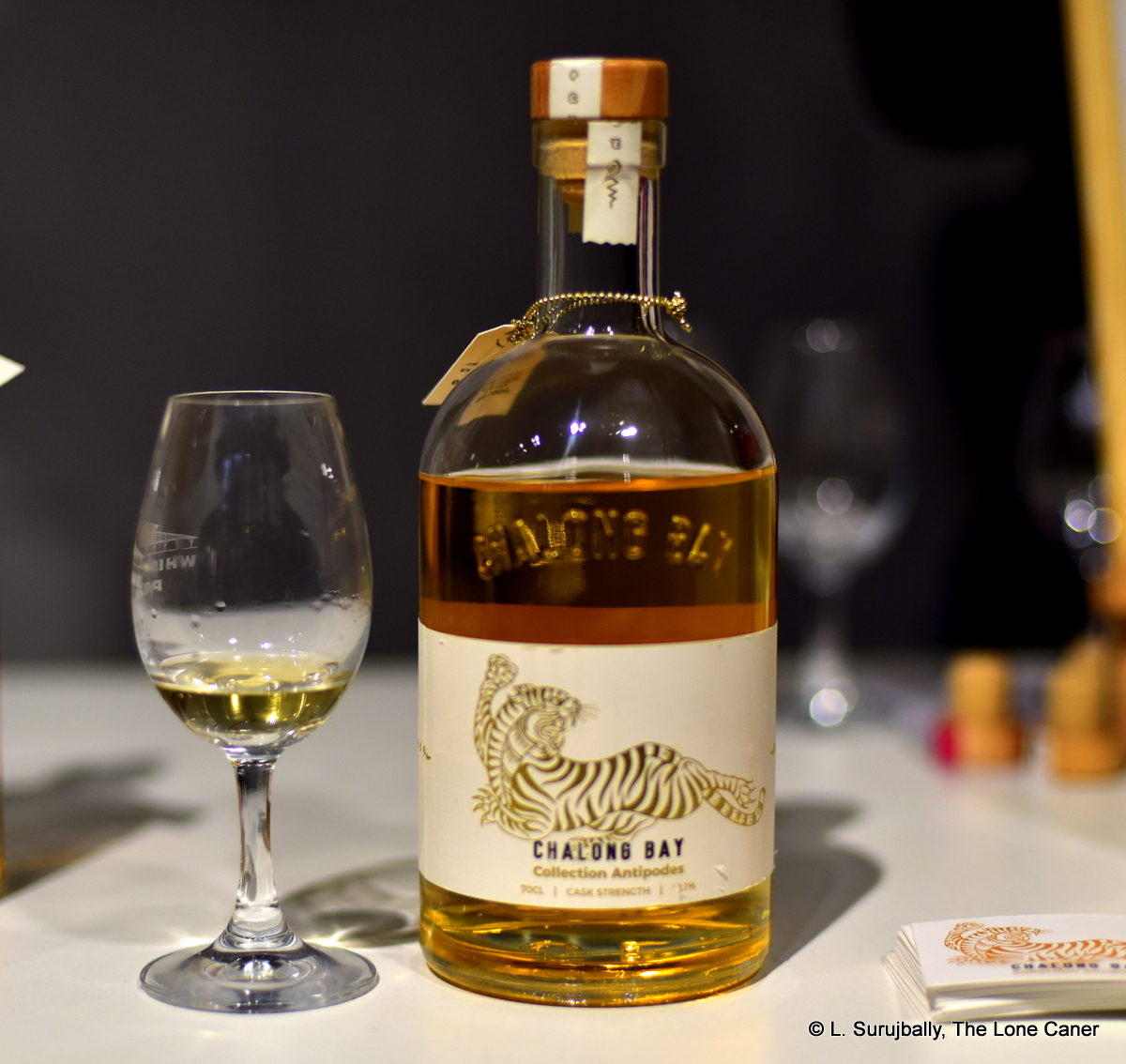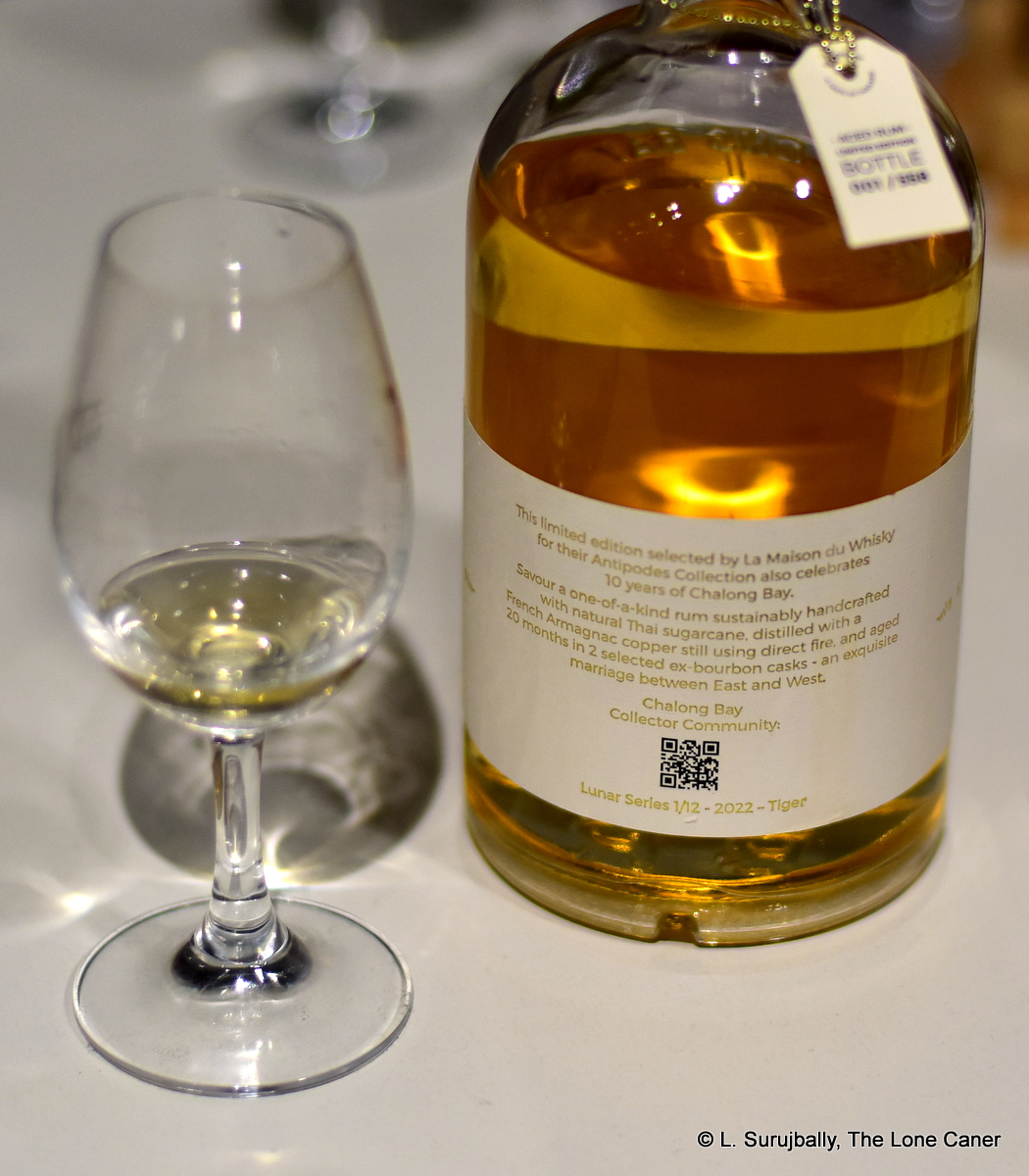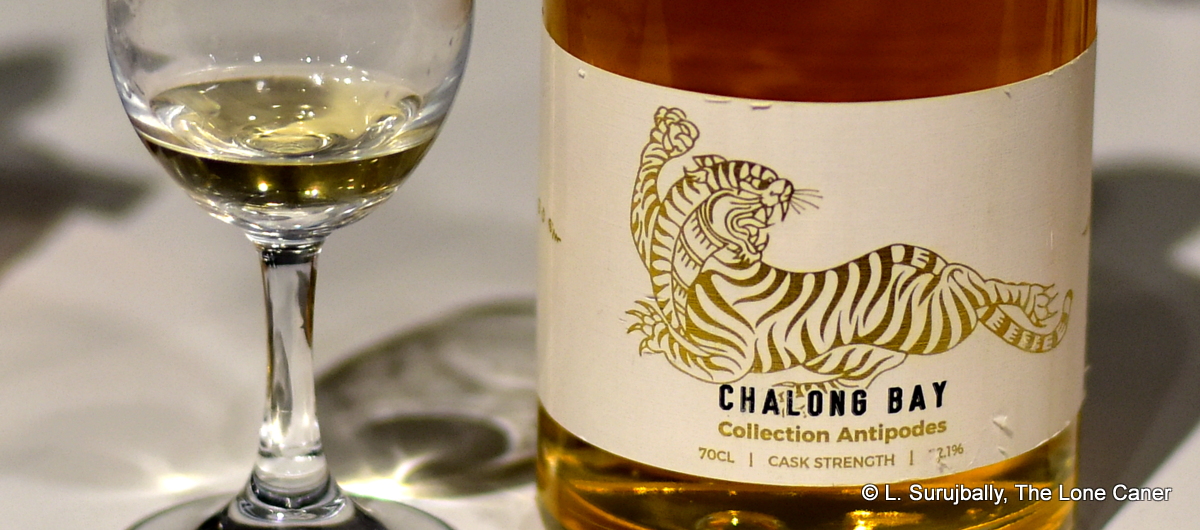“Asia may be the next region to discover for rummies,” I wrote back in 2018 when introducing audiences to Chalong Bay for the first time, and nothing between then and now has caused me to significantly alter that off-the-cuff prognostication. Already, back then, we were seeing interesting (if not always world-beating) rums from Tanduay from the Philippines, Mekhong from Thailand, Amrut from India, Sampan from Vietnam, and Laotian from Laos. Australia was ticking along under everyone’s radar, the Pacific islands were just getting more well known, and of course there was always Nine Leaves out of Japan.
Not long after that new companies and new brands began to sprout up and become better known through exhibitions at rum festivals all over Europe: rums from artisanal companies like Renaissance (Taiwan), Mia (Vietnam), Naga (Indonesia), Samai (Cambodia), Issan (Thailand), Mana’o (Tahiti) rubbed shoulders with older and more established — but still barely known — brands like Teeda and Cor Cor (Japan), Old Monk (India), Kukhri (Nepal), Laodi (Laos), and Sang Som (Thailand again). This is what I mean when I remark that poor distribution and a fixation with the Caribbean sometimes obscures the seriously cool work being done elsewhere, and if it weren’t for an occasional indie release, we’d never even hear about some of them.
But I digress: Chalong Bay is one of the relatively new companies out there, founded in 2014 by a pair of French entrepreneurs from named Marine Lucchini and Thibault Spithakis who saw Thailand as a good place to start a small artisanal distillery. They sourced a copper column still from France and went fully organic and all-natural: no chemicals or fertilisers for the cane crop, no burning prior to harvesting, hand harvesting, and a spirit made from freshly cut and crushed cane juice with no additives, sourced from local farmers from around the region they operate – Phuket, a tourist town on a spit of land jutting into the Andaman sea (the distillery is just south of the town of Phuket itself).
When last I looked at their rums, there wasn’t a whole lot of variety in the lineup. Little or no aged juice, a white and some infusions and that was it. Nowadays Chalong Bay sports three distinct lines – #001, which is the original pure unaged white rum at 40%, #002 the “Tropical Notes” series which is vapour-infused flavoured white rum (lemongrass, Thai sweet basil, cinnamon, kaffir lime are examples), and #003, a spiced variation mixed up with some nine different Asian botanicals. What their website doesn’t tell you is all the other stuff they make and which was on display at 2022’s WhiskyLive in Paris: a 2YO aged version, two different unaged whites (one wild yeast version with longer fermentation time, and another one at 57%), and this one, which was released by LMDW for their “Antipodes” collection last year – a 20 month old 62.1% growler (which is also called the Lunar Series, and represented in 2022 by the tiger on the label). It came from two ex-bourbon barrels aged in France (not Thailand), so somewhat limited, though the exact outturn is unknown…I’d suggest around a thousand bottles, maybe a shade less.
That strength is off-putting for many, and with good reason – north of 60% is getting a little feral, and this cane juice rum is no exception — it’s snarly, gnarly and ugly and it doesn’t much like you. Behind all that aggro, however, is a full service agricole taste smorgasbord, plus a swag bag of gleefully provided extras. It starts off with brine, olives and sugar water and that colourless sweet syrup they sometimes put into some concoction at Starbucks. There’s a a nice scent of hummus with unsweetened yoghurt and olive oil (and a pimento or two), but all that’s required here is a little patience: soon enough we get sweet deep fruits – strawberries, apricots, pears, raspberries, ginnips, kiwi fruit, and peaches and cream. Stick around long enough and citrus-like sodas like Sprite or Fanta make their appearance…and, even a faint tinge of mints…or mothballs.
Well…okay. It’s interesting for sure, and it is deep and strong, if a little arid. The taste is like that as well: sharp, dry, clean and fierce. It tastes initially of sugar water, soda pop, coconut shavings, combined with a flirt of vanilla and as it opens up we get crisp fruits, some light toffee and more of those pale, easy going fruits like pears, papaya, melon and white guavas. Some water is good to have here, and I’m sure it would make a banging daiquiri. The palate is the sort of thing that gives a bit more if you stick with it, and the finish is equally tasty (as well as being long and quite dry), without actually introducing much that hasn’t passed by already.
Overall, this is a rum that’s got a lot going on, is very tasty and a joy to smell. It reminds me of the O Reizinho we looked at last week, with some of that same dichotomy between the youth and the age: the two sides coexist, but uneasily. Recently I’ve tried a few rums that first made their bones as unaged unapologetic white beefcakes – clairins, the new Renegades, the Reizinho, etc – and were then aged a smidgen and released as sub-five year old rums (Rum Nation also did that with their first Jamaican white, you may recall). And while most are good – as this is – almost none of them have vaulted to the next level and blown my socks off…at least not yet.
The new and the original is always worth trying, and Chalong Bay has been on my radar for quite a while: what they have managed to do here for LMDW is just a few shots shy of spectacular. White rhums are admittedly something of an acquired taste, and maybe this rum will not find favour with a global, mellower audience which doesn’t eagerly or willingly (let alone deliberately) walk into a face-melting exercise in spirituous braggadocio. Still: I think this is one hell of a rum, showing the heights to which a minimally aged white can aspire if not filtered to death or overly messed with — and if on this occasion it doesn’t quite make the peak, well, it comes damned close.
(#1008)(85/100) ⭐⭐⭐½


